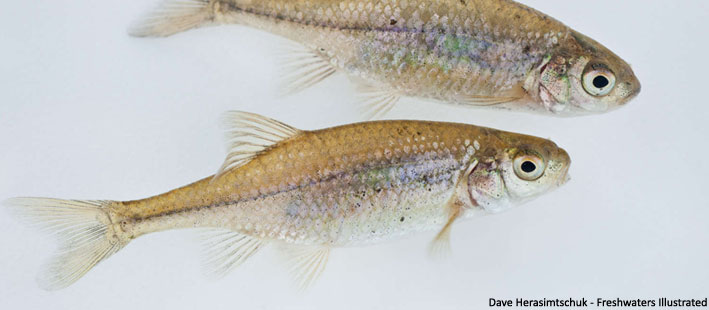Landowner-Nonprofit Partnerships Aid in Recovery of Oregon Chub
Small minnow native to the Willamette Valley is the first fish proposed for removal from the Endangered Species List due to recovery
Nonprofits and private landowners have played an important role in the historic recovery of Oregon chub, a small minnow native to the Willamette Valley. On February 4, 2014, the U.S. Fish and Wildlife Service proposed to remove the Oregon chub from the Endangered Species List due to its recovery. If finalized, it would be the first fish to be delisted from the federal Endangered Species Act.
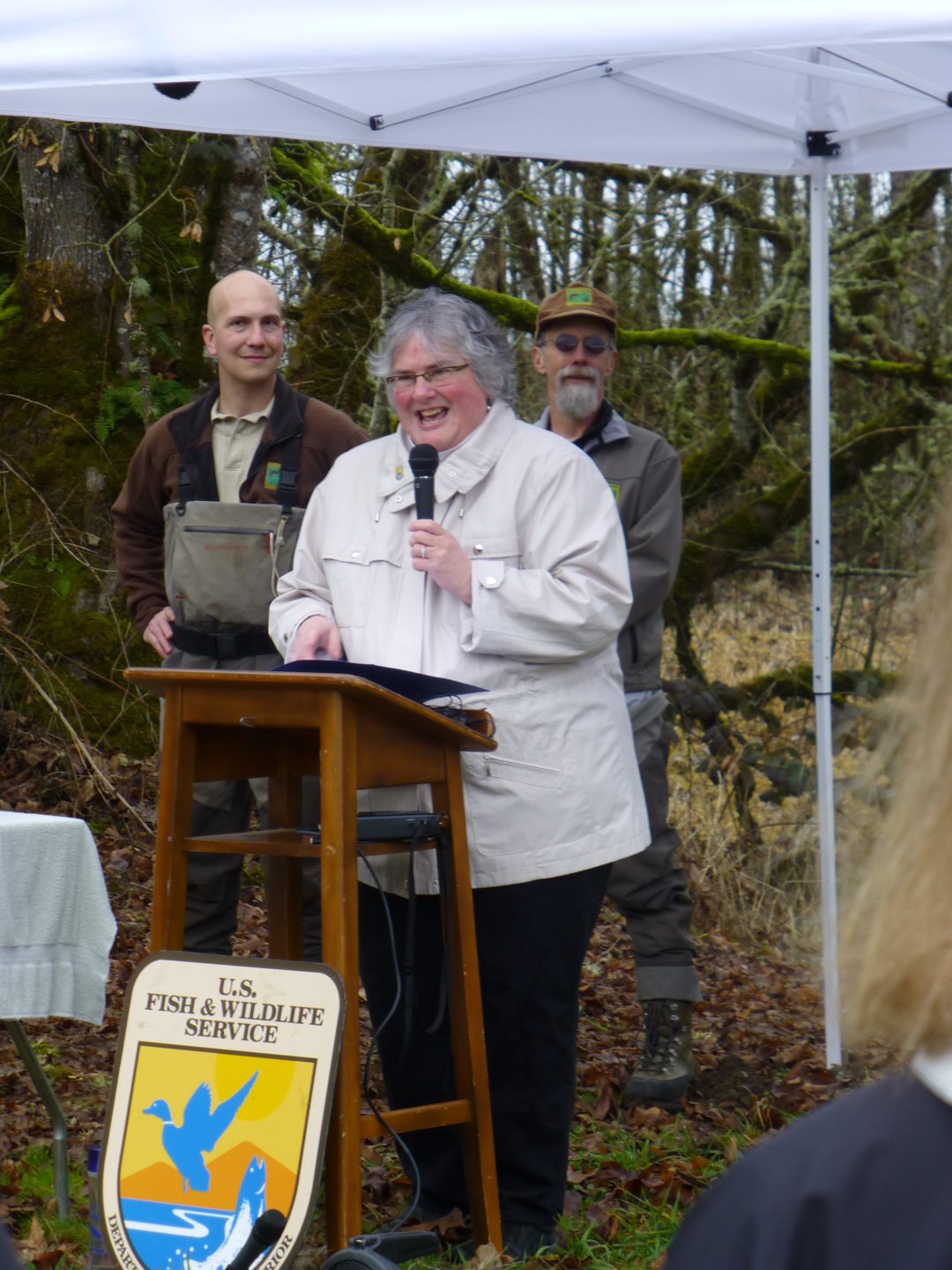
The historic announcement was made from the Berggren Watershed Conservation Area, a 92-acre property owned by the McKenzie River Trust (MRT). MRT is a land trust formed in 1989 to protect clean water, fish and wildlife habitat, and productive natural lands in western Oregon. The Berggren property was selected for the announcement because it contains a natural population of Oregon chub that has been growing over the past few years within some of the best side channel and floodplain forest habitat found on the lower McKenzie River. Since 2001, MRT has worked with private landowners to permanently protect habitat for chub and other species on six properties on this stretch of the river. These linked conservation areas help ensure that as the river continues to meander and change, there will always be suitable habitats for chub and other aquatic species.
“Protecting and caring for healthy habitat across the floodplain has been a key to chub recovery,” said Joe Moll, Executive Director of the McKenzie River Trust. “Here in Oregon, we live, work, and play among living rivers. We are proud to be a part of a partnership that has helped this native fish make a comeback. It is good news not only for chub, but for everything that depends on clean water and a healthy river. And that’s all of us.”
Chub ecology
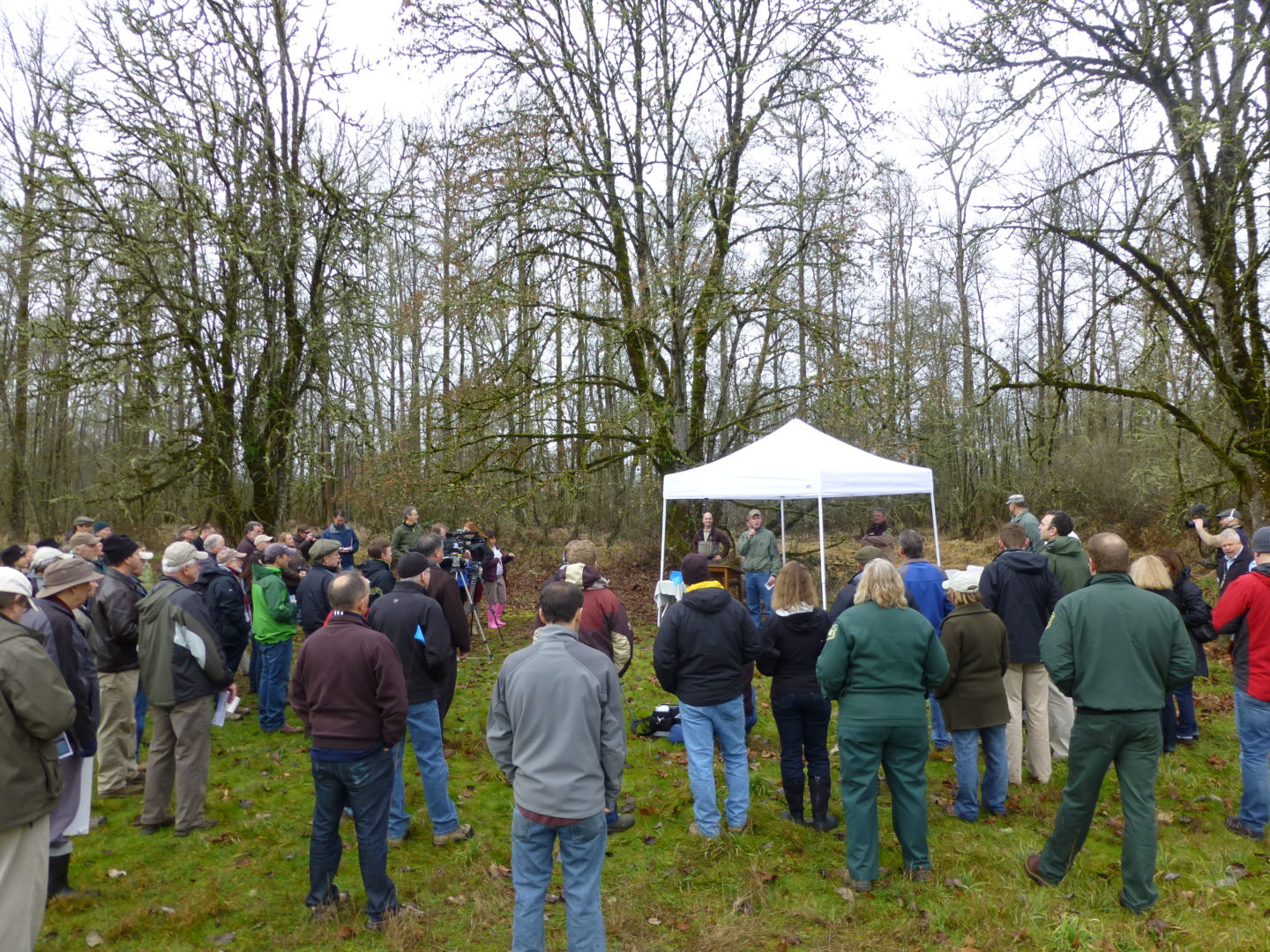
The chub is a small minnow existing only in the Willamette River Basin in floodplain habitats with limited or seasonal water flow such as beaver ponds, side channels and flooded marshes. These rare habitats generally have considerable aquatic vegetation to provide cover for hiding and spawning, and they are also home to other species of concern such as Chinook salmon, Red-legged frogs, and Western pond turtles.
Oregon chub were listed as endangered in 1993 under the Endangered Species Act and reclassified as threatened in 2009. If delisting is finalized, the fish will have gone from endangered to recovered in just over 20 years.
A home for chub
A private landowner sold the Berggren property to MRT in 2010. The purchase was supported by grant funding from the Bonneville Power Administration’s Willamette Wildlife Mitigation Program, the McKenzie Watershed Council and the Eugene Water and Electric Board. The property contains about 60 acres of riparian habitat next to 30 acres of farmland managed by Cascade Pacific Resource Conservation and Development as the Berggren Demonstration Farm. The Farm is supported by EWEB’s Healthy Farms Clean Water program.
“We use ecologically appropriate farming practices so that we don’t harm species like chub,” said Jared Pruch, Coordinator for the Berggren Demonstration Farm. “We’re proud to partner with the McKenzie River Trust, McKenzie Watershed Council, EWEB, and others to build a strong local food system and engage the community to learn how to farm in a way that supports our native habitats.”
“What’s unique and exciting about the Berggren property is the opportunity to integrate restoration and education within the context of a collaborative partnership with the Trust, Farm and local schools,” said Jared Weybright, Project Manager for the McKenzie Watershed Council and coordinator of much of the restoration happening on the Berggren property. “Students participate through active involvement in tree planting and monitoring both the progress of the restoration work and natural conditions throughout the property.”
Diverse partnerships lead to success
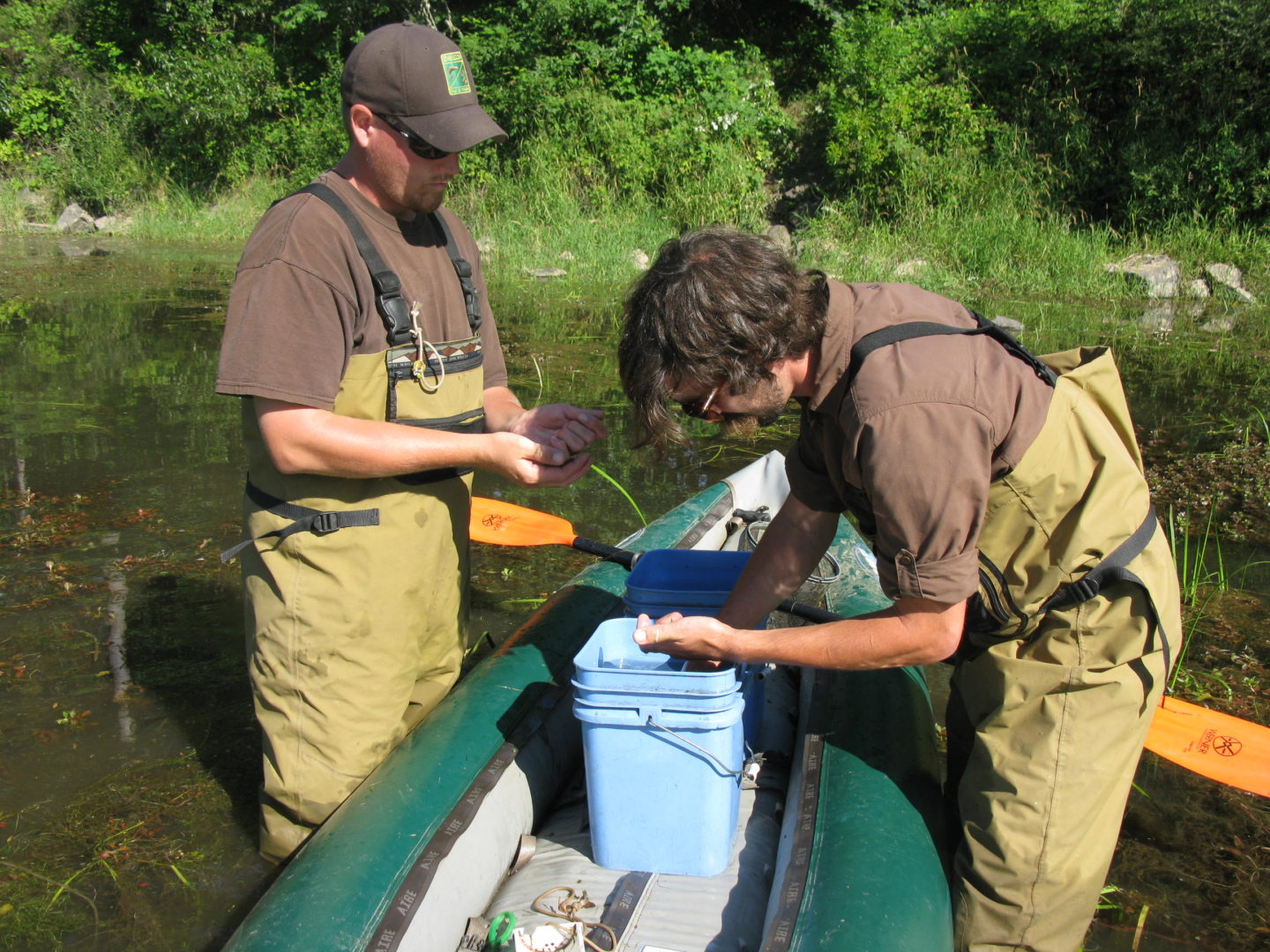
Partnerships have been the foundation of the Oregon chub’s recovery, beginning with the Oregon Department of Fish and Wildlife’s conservation planning efforts which led to the development of the species’ recovery plan. The McKenzie Watershed Council, Long Tom Watershed Council, and Middle Fork Willamette Watershed Council have helped coordinate many private landowners who have contributed to the recovery of Oregon chub by managing habitats to support the fish on their lands. In some cases, private landowners have also created habitat to support introductions of the species on their property. Other key partners include Lane County, which owns parkland adjacent to the Berggren property that is home to several natural chub populations, and the Meyer Memorial Trust, which has catalyzed habitat conservation efforts basin-wide through the Willamette River Initiative. Many public agencies also manage habitats that support Oregon chub populations.
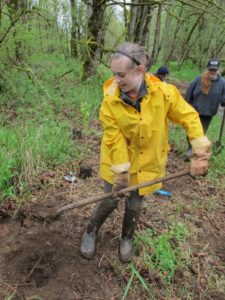
“Efforts to conserve Oregon chub have been collective in the Willamette Valley. This recovery clearly demonstrates how a listed species can make a comeback in a highly populated, working landscape,” said Paul Scheerer, Oregon Chub Recovery Project Leader for the Oregon Department of Fish and Wildlife.
The U.S. Fish and Wildlife Service now has up to one year to determine whether the proposal should become final. The Service will open a 60-day public comment period to allow the public to review and comment on the proposal and provide additional information. The final decision whether or not to delist the Oregon chub will be based on the best scientific and commercial data available.
In the meantime, groups like the McKenzie River Trust, McKenzie Watershed Council, and Cascade Pacific Resource Conservation and Development will continue to coordinate with biologists from state and federal agencies to track chub populations and protect and restore habitat for the many creatures that benefit from healthy natural lands.

